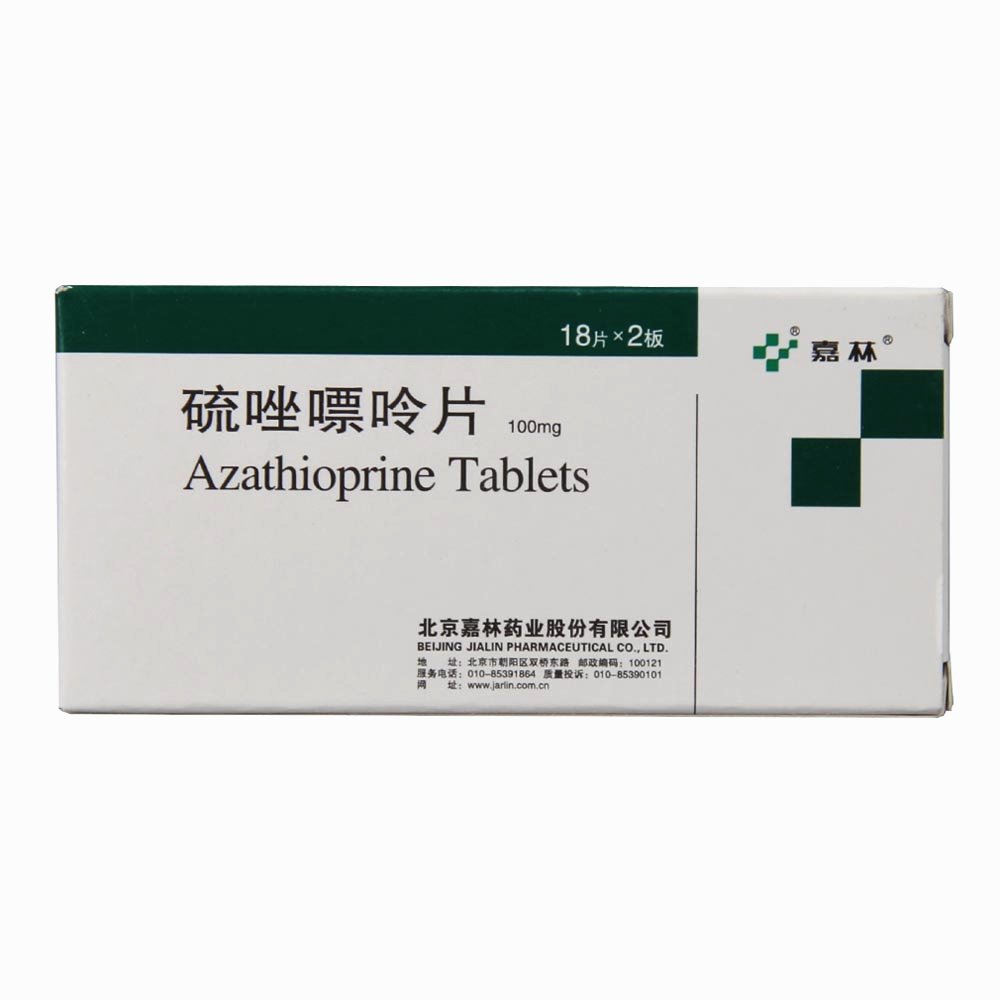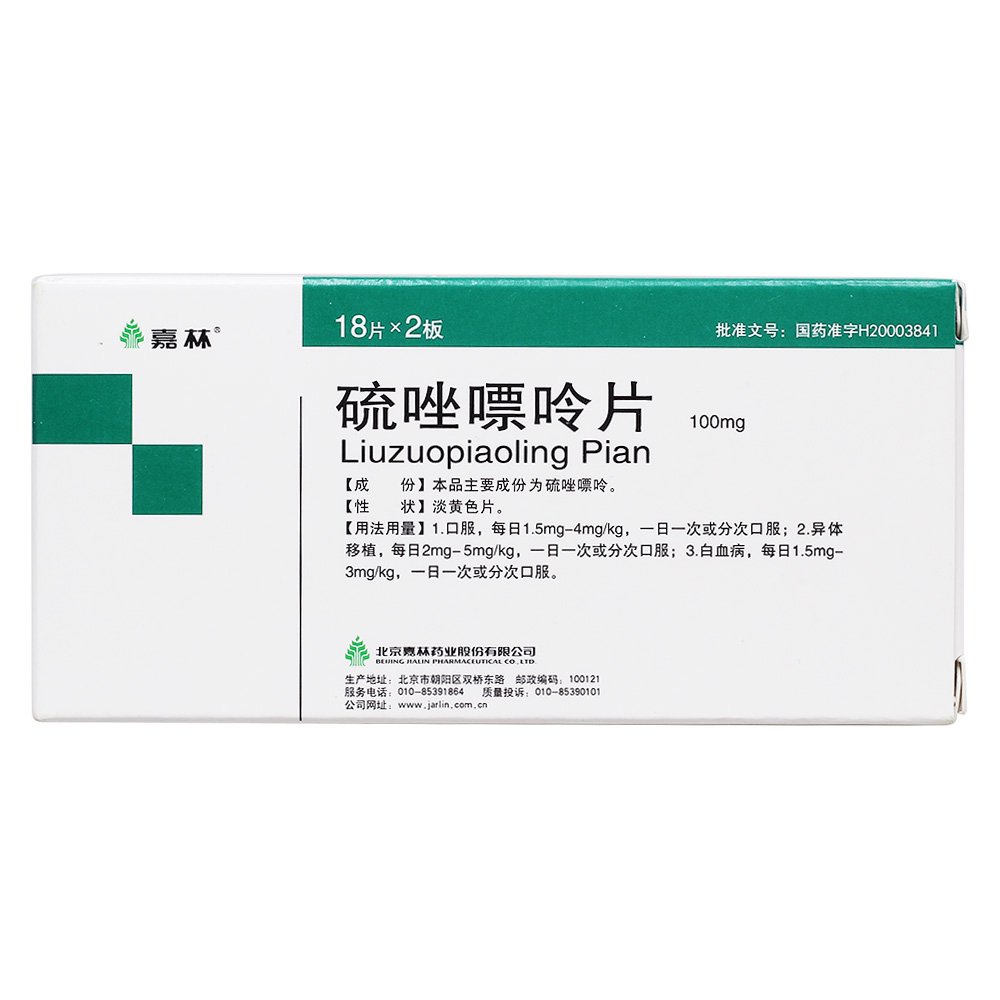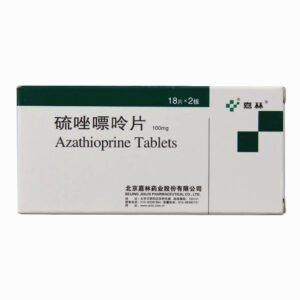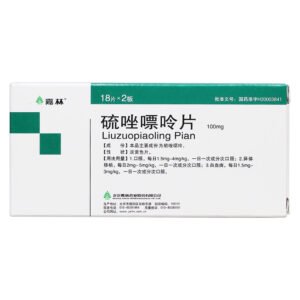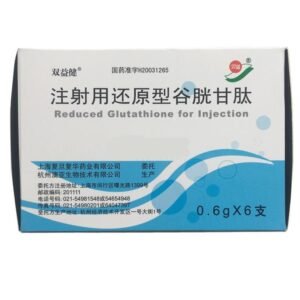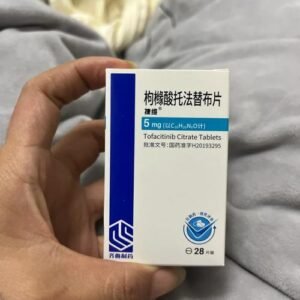Azathioprine Tablets
Effects and efficacy: Acute and chronic leukemia, with good short-term efficacy for chronic myeloid leukemia, fast effect, but short remission period. Acquired hemolytic anemia, idiopathic thrombocytopenic purpura, systemic lupus erythematosus. Chronic rheumatoid arthritis, chronic active hepatitis (hepatitis related to autoimmunity), primary biliary cirrhosis. Hyperthyroidism, myasthenia gravis. Chronic nonspecific ulcerative colitis, segmental enteritis, polyradiculitis, lupus nephritis, proliferative nephritis, Wegener’s granulomatosis, etc. Usage and dosage: After organ transplantation, long-term maintenance treatment should be performed, otherwise the expected rejection reaction will occur. Patients should reliably and systematically follow the treatment plan during acute or long-term treatment, so that successful treatment effects can be achieved. When using this product under special circumstances, please refer to the opinions of experts in advance. Dosage for organ transplantation – Adults and Children: The first day dose, the dosage of this product depends on the immunotherapy regimen adopted, usually the first day dose is up to 5 mg per kilogram of body weight per day. Maintenance dose, the maintenance dose should be adjusted according to clinical needs and the tolerance of the blood system, generally 1-4 mg per kilogram of body weight per day. Therapeutic dose for other diseases – Adults and Children: In general, the starting dose of this product is 1-3 mg/kg/day. During the continuous treatment, it is adjusted accordingly within this range according to the clinical response (may not respond for months or weeks) and the tolerance of the blood system. When the treatment effect is obvious, the dosage should be reduced to the lowest dose that can maintain the efficacy as the maintenance dose. If the condition does not improve within 3 months, the drug should be discontinued. The maintenance dose of this product ranges from less than 1 mg per kilogram of body weight per day to 3 mg per kilogram of body weight per day, depending on the needs of clinical treatment and the individual response of the patient, including the tolerance of the blood system. Patients with liver damage and the elderly should be given the lower limit of the recommended dose. When liver or hematological toxicity occurs, the drug dose should be further reduced. The same drug produced by different manufacturers may have inconsistent instructions. If you find inconsistencies in the drug instructions before taking the drug, please consult a doctor or pharmacist in time.
Adverse reactions:
Similar to mercaptopurine but slightly less toxic, can cause bone marrow suppression, liver damage, teratogenesis, rash, and occasional muscle atrophy.
Drug contraindications:
Contraindicated for allergic reactions to this product Contraindicated during pregnancy
Share:
Products
Our offers
Health Classification
Let us work together to protect precious health

